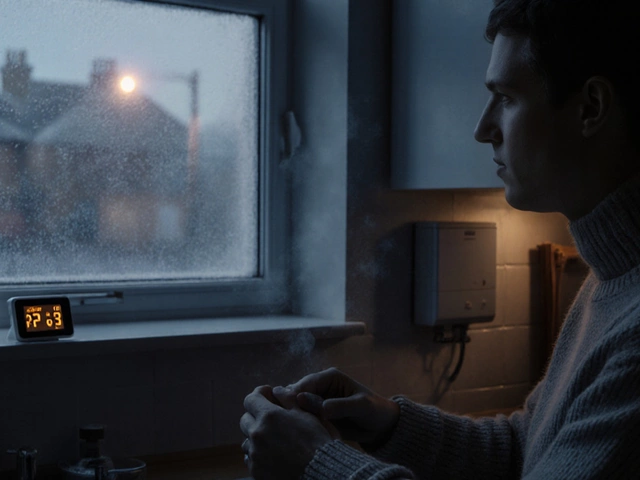If you’ve just installed a heat pump or have been living with one for a few years, you probably have a mix of good days and frustrating ones. One minute it’s keeping the house cosy, the next it’s blowing cold air or making odd noises. The good news? Most of those hiccups are fixable without calling a specialist, and knowing how long a heat pump should last helps you plan for the future.
The first thing to check is the thermostat setting. It sounds obvious, but setting it to ‘cool’ by mistake is a common slip‑up. If the settings are right, move on to the filters. A clogged air filter restricts airflow, making the unit work harder and sometimes shutting down the heating cycle. Swap out the filter – most are cheap and fit in a minute.
Next, look at the outdoor unit. Leaves, dust, or a blocked fan can cause the coil to freeze, which stops warm air from being produced. Turn the unit off, clear any debris, and let the coil thaw for 30 minutes. When you switch it back on, you should feel warm air again.
If the problem persists, the refrigerant level might be low. Low refrigerant usually means a leak, which isn’t a DIY fix. Call a qualified engineer to check the pressure and repair any leaks. While you’re waiting for a pro, keep the indoor fan on low to circulate whatever heat is still being generated.
In the UK, a well‑maintained air‑source heat pump typically lasts 12‑15 years, while ground‑source models can push 20 years or more. The biggest factors that shorten life are poor maintenance, harsh weather, and running the unit constantly at very low temperatures.
Regular maintenance is the cheapest way to extend lifespan. Clean the outdoor coils twice a year, replace filters every three months, and schedule a professional check‑up before the heating season starts. A quick inspection can spot worn bearings, loose wiring, or low refrigerant before they cause a breakdown.
Another tip: avoid setting the thermostat too high. Running the pump at maximum output every night puts extra strain on compressors and can cut years off the unit. A comfortable 20‑21°C is usually enough for most homes and is kinder to the equipment.
When you finally reach the end of the pump’s life, don’t rush to replace it with the same model. Newer units are more efficient, especially in colder weather, and the government sometimes offers incentives for upgrading to a higher‑efficiency model.
Bottom line: keep filters clean, clear the outdoor unit, schedule a yearly service, and avoid extreme thermostat settings. Those simple steps will keep your heat pump humming for years and save you money on energy bills and unexpected repairs.

Learn how to spot a malfunctioning heat pump, recognize warning signs early, and troubleshoot issues to keep your home comfortable and energy bills in check.

A reliable heat pump is essential for maintaining comfort in your home. Some signs indicate that your heat pump might need replacing, such as increased energy bills, inconsistent temperatures, strange noises, old age, and frequent repairs. Understanding these warning signs can help you decide if it's time to invest in a new system.

Exploring the value of repairing a freezer involves assessing various factors, such as the cost of repairs, the appliance's age, and the efficiency improvements of newer models. Understanding common freezer problems can help homeowners decide whether a repair is worthwhile. The decision should account for both economic and environmental perspectives, guiding when to repair or replace.

Wondering who fixes extractor fans? Find out which trade has the right skills, top repair tips, and practical advice for solving extractor fan issues fast.

Ready to buy a new dishwasher? Check this guide for 2025's most unreliable dishwasher brands, stories you won't believe, and tested buying tips no one else will give you.

Find out how much boiler repair costs in 2025, what factors affect the price, typical price ranges, and tips to get fair quotes and save money.

Struggling with a troublesome boiler? Discover the most frequent issues like lack of heat, strange noises, and leaking water. Learn practical tips and tricks on how to diagnose and fix these problems on your own. Recognize when it's time to call a professional and keep your home warm and comfortable.